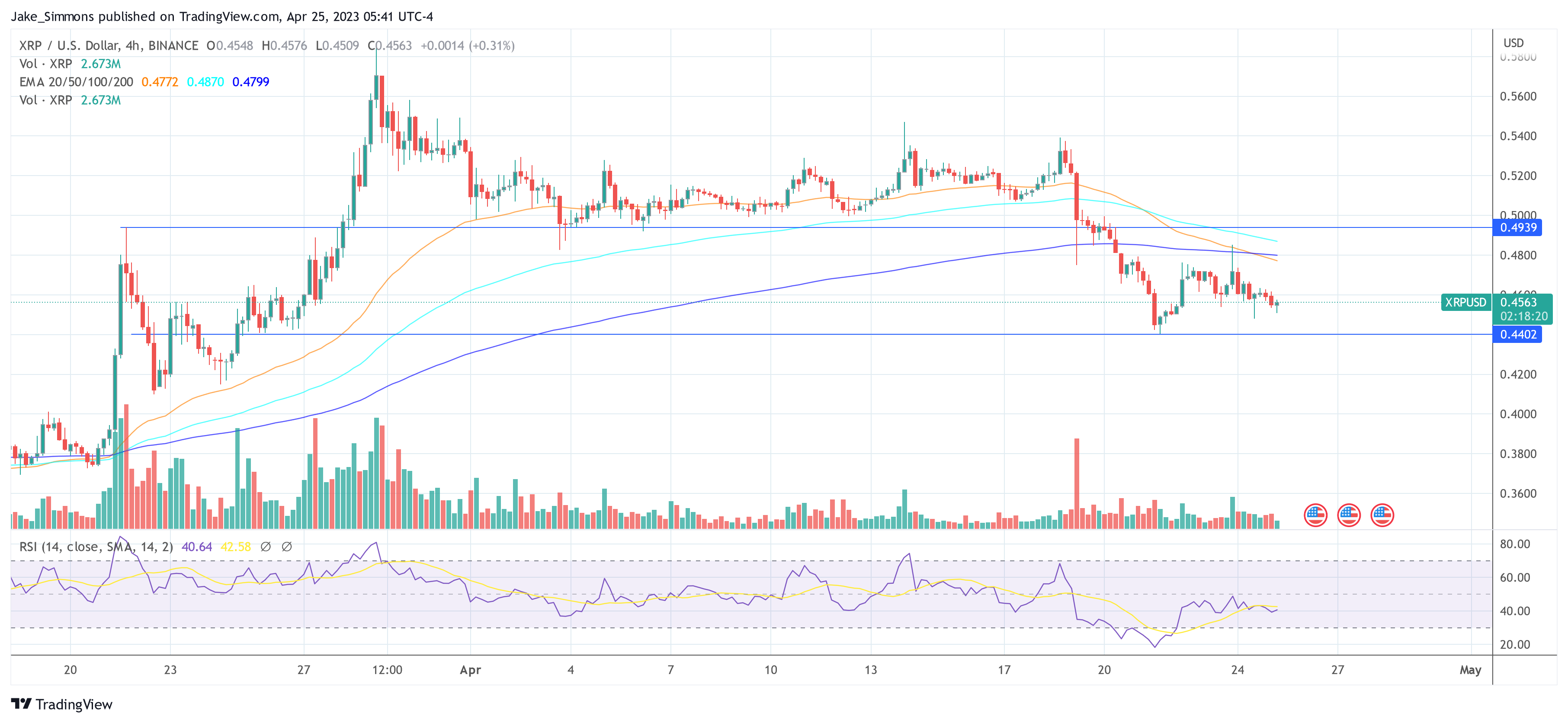Latest news about Bitcoin and all cryptocurrencies. Your daily crypto news habit.
Coinbase filed a lawsuit against the Securities and Exchange Commission (SEC) in the US Circuit Court today, which will also be of paramount importance to Ripple Labs and its legal battle against the agency. In a blog post, the largest US crypto exchange shared that the lawsuit is about a decision on a July 2022 petition.
Coinbase wants to force the SEC to respond with a “yes” or “no” to the petition, in which they ask the SEC to use its formal rulemaking process to provide guidance for the crypto industry. The agency is required by law to respond to the petition within a timely manner.
To date, however, the SEC has not met with a response – as Coinbase alleges, intentionally. Coinbase claims that the SEC has already made up its mind, but does not want to communicate a decision, as was evident during chairman Gary Gensler’s hearing before the US Congress last week. By refusing to answer, however, the SEC is depriving Coinbase of the possibility of a judicial review:
If the SEC says no to our rulemaking petition, which it has the right to do, then Coinbase would be allowed to challenge that decision in court […] So it’s important for the SEC and any other agency petitioned for rulemaking to respond to the petition […] – otherwise the public can never exercise its right to ask a court if the agency’s decision was proper.
The lawsuit filed by Coinbase therefore simply asks the court to require the SEC to communicate its decision. “We are simply requesting that the Court order the SEC to respond at all, which they are legally obligated to do,” Paul Grewal (chief legal officer of Coinbase) wrote in the blog post.
The Significance For Ripple Vs. The SEC
In addition to the regulatory clarity that Coinbase’s lawsuit could provide, it may also have a direct impact on the legal battle between Ripple and the SEC. As XRP community attorney John E. Deaton explained via Twitter, it’s the second Writ of Mandamus filed in relation to crypto.
“I love the petition because I filed crypto’s 1st Writ of Mandamus when I sued the SEC asking a judge to order the SEC to do its job and amend the Ripple Complaint to include only direct sales by Ripple,” Deaton remarked.
Beyond that, Coinbase’s lawsuit against the SEC has yet another significance for Ripple. Attorney Bill Morgan argues that Coinbase, like Ripple, relied on the Hinman speech, in which he made a purported ruling for the second-largest cryptocurrency, Ether (ETH).
Whether the argument is powerful, remains to be seen. As Morgan explains, the SEC claims that the Hinman speech was about personal views of the former department head. To date, no court has found that Hinman’s speech was an official SEC statement.
However, an opinion by SEC Commissioner Hester Peirce, which Coinbase cites, could be helpful because it shows that market participants who attempted to act in good faith were subject to enforcement actions.
The assertion of Hester Pierce is all so not an official SEC position but is more helpful to Coinbase because it shows that those market participants who are trying to act in good faith are being subjected to enforcement actions. /3 pic.twitter.com/oEjRqykCKI
— bill morgan (@Belisarius2020) April 25, 2023
Morgan’s conclusion is:
Whatever you say about whether or not cryptos are securities and assuming the registration process is not suitable for cryptos this paints the SEC in a bad light and acting with an agenda.
Coinbase’s lawsuit should thus provide another compelling argument for Ripple and its fair notice defense. As Bitcoinist reported, a ruling from Judge Torres of the U.S. District Court of Southern New York could come any day now.
At press time, the XRP price was at $0.4563.
Disclaimer
The views and opinions expressed in this article are solely those of the authors and do not reflect the views of Bitcoin Insider. Every investment and trading move involves risk - this is especially true for cryptocurrencies given their volatility. We strongly advise our readers to conduct their own research when making a decision.
